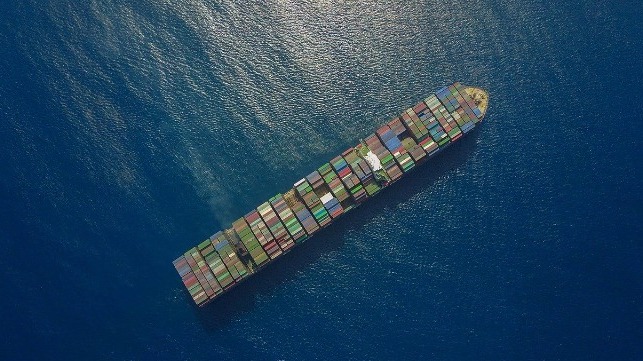
MAN is Optimistic for Methanol as Industry Advocates to Speed Adoption

Following the news that Maersk has ordered the first large dual-fuel containerships that it plans to operate on methanol, the industry is questioning if this will spur the rapid adoption of the alternative fuel. Leading engine manufacturer MAN is forecasting that others will quickly follow Maersk’s lead while a leading methanol industry group used the opportunity to advocate for a change in how emissions are calculated to accelerate maritime decarbonization and support the adoption of methanol.
“As a fuel, methanol is quickly becoming an option within the large container-vessel segment where – up until now – conventional fuel and LNG have long reigned,” said Thomas S. Hansen, Head of Promotion and Customer Support, MAN Energy Solutions. “We expect that this significant order will spur further market interest in methanol as a fuel, also within other ship segments such as bulkers.”
A.P. Møller-Maersk indicated its support for methanol earlier this year saying that it would begin to pursue the alternate fuel. They ordered a smaller, feeder vessel in July which was billed as the first pure methanol containership. Now, saying the technology for methanol-fuel propulsion is rapidly advancing, Maersk ordered eight 16,000 TEU containerships along with an option for four additional vessels.
MAN announced that the order specifies the world’s largest, dual-fuel, methanol engine, which they believe will further methanol as a marine fuel. Hyundai’s Ship-Building Division ordered eight MAN B&W 8G95ME-LGIM (-Liquid Gas Injection Methanol) engines for the Maersk ships. Hyundai’s Engine & Machinery Division will build the engines that will be capable of burning bio-methanol as well as e-methanol.
“This is a massive milestone as these engines will be the largest methanol-burning engines ever constructed,” said Bjarne Foldager, Senior Vice President and Head of Two-Stroke Business, MAN Energy Solutions. MAN reports that it is also supplying the world’s first, low-speed, dual-fuel engine to run on methanol within the container segment to power Maersk’s 2,100 TEU feeder ship which is being built by Hyundai Mipo Dockyard.
While MAN says that it developed the ME-LGI engine in response to interest from the shipping world in operating on alternatives to heavy fuel oil, the industry trade group, The Methanol Institute is calling on maritime policy-makers to adopt a well-to-wake approach in GHG accounting of fuels, which it believes would accelerate the decarbonization by making methanol more attractive to the industry. They published the policy position ahead of IMO and COP 26 environmental meetings that they said will set the direction for sustainable marine fuels
“The tank-to-wake approach currently used by IMO undisputedly places the burden of GHG emissions solely on ship owners and it implies that to achieve decarbonization, they are held wholly responsible for ensuring decarbonization of the sector,” says Gregory Dolan, Chief Executive Officer, The Methanol Institute. “A well-to-wake approach would share the burden with fuel suppliers, power generators, port authorities, and national governments – we can’t just look at what happens in the engine room and ignore how the fuel got there in the first place.”
Applying a well-to-wake approach in GHG accounting of maritime transport would provide an investment signal and foster innovation in renewable power generation, and avoid transferring the reallocation of GHG emissions to upstream fuel production processes while placing the burden of decarbonization on the entire maritime sector rather than to shipowners alone, says the Institute. The full life-cycle approach would also better enable a response to regulatory targets while policy should also incorporate incentives to accelerate decarbonization efforts.
The Methanol Institute said it will work with IMO member states and industry bodies to promote the application of a well-to-wake approach to accurately establish a comparison of marine fuel performance with regards to GHG emissions.
Source : The Maritime Executive


